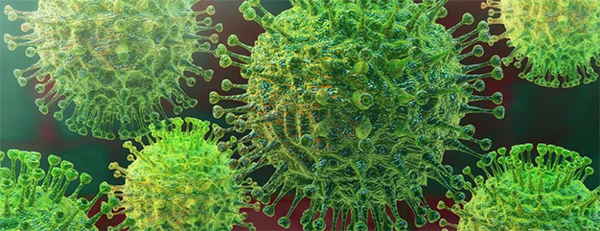||| FROM BRENDAN COWAN for DEPARTMENT OF EMERGENCY MANAGEMENT |||
As vaccine continues to roll out, an increasing number of islanders are receiving their second doses. Below is some key information to keep in mind. If you’re not going to read to the end, here’s the quick and dirty:
- When it is time to schedule your second dose, you’ll get an email from a sanjuanco.com email address with the link to register.
- No, you may not receive your second dose in a different location from your first.
- Side effects from your second dose may be worse than your first.
- Yes, you must maintain all of your COVID precautions, even if you’re vaccinated.
QUESTION: When should I receive my second dose of vaccine?
The Moderna vaccine is the only type of vaccine distributed at the San Juan County-run vaccine clinics. Other vaccines will have different guidelines, but this document will focus on the Moderna vaccine as that is the dose given nearly universally in the islands.
For the Moderna vaccine, to ensure maximum effectiveness the second dose may be administered no less than 25 days after the first dose, and no more than 45 days after it. That said, every effort is being made to deliver second doses 28 days later.
QUESTION: How do I schedule my second dose?
For islanders who have received their first dose at a San Juan County Health & Community Services (or National Guard supported) vaccine clinic, you will be notified via email when it is time to schedule your second dose. It is highly likely that your appointment will be exactly 28 days after your first.
You will be asked to complete the registration process again. This is done to capture any updated medical information, particularly around adverse reactions to the first dose.
NOTE: scheduling second doses is not competitive. There will be enough doses and time slots to accommodate everyone who received a first dose. Your second dose is automatically allocated by WA Department of Health (DOH) as soon as you receive a first dose.
Exact procedures for scheduling will vary with other vaccine providers in San Juan County. The system of all second doses being automatically allocated after first dose is true for all vaccine sites.
QUESTION: Do I need to bring my vaccine card from my first shot with me?
Yes. Please, please do – it’s important! That said, if you’ve lost it, still come. We’ll figure it out.
QUESTION: What if I won’t be available to attend a clinic 28 days after my first dose?
Please do not receive a first dose without ensuring you will be available to receive your second dose 28 days later.
QUESTION: I’ve received a second dose reminder email that seems like spam. Is it?
The WA State DOH vaccine scheduling tool does send out reminder emails that look like spam. We (and many other vaccine providers) are working (pleading) with DOH to eliminate this function. Please don’t click the link in this email to register (it won’t cause you any problems if you do, but it won’t help you either).
When it is time to schedule your second dose you will receive an email from a sanjuanco.com email address that provides a specific link to register for your second dose clinic.
QUESTION: Can I receive my second dose in a different location than my first?
No. The WA State vaccine distribution system links first and second doses together. If you receive a first dose at one location, your second dose will automatically be delivered to that same site. Switching locations disrupts the system and results in vaccine shortages and supply chain inconsistencies.
There may be a future time where switching between locations across WA is possible, but it is not at this time.
QUESTION: What about switching between islands? If I traveled to one island for my first dose, but live on another, can I receive my second dose on my home island?
At this time, everyone is asked to return to the site of their first dose for their second dose.
QUESTION: I’ve heard that the side effects of the second dose are worse than the first. Is this true?
Potentially. People are more likely to experience side effects from the second dose. This is due to your body now having a more robust immune response to the virus, which results in the signs that your body is responding to the vaccine being stronger. Visit this CDC info page for full details on potential side effects and treatments.
Note that if you’re lucky enough to not have any side effects, the vaccine is still working. Some people’s immune system kick into over-drive, but for many their bodies respond without any side effects at all. Because of the potential for side effects, it is recommended that those being vaccinated plan on laying low for a day or two in case the side effects are significant.
Remember, while side effects are a sign that the vaccine is working, please contact your healthcare provider if the pain and tenderness worsen after 24 hours, or if your side effects are worrying you or don’t seem to go away after a few days. As always, call 911 if the situation seems urgent or life threatening.
Cough, shortness of breath, runny nose, sore throat, or loss of taste or smell are NOT consistent with post-vaccination symptoms. Please contact your healthcare provider for evaluation for possible COVID infection.
QUESTION: Once I have my second dose, how long until I have achieved maximum immunity?
Two weeks.
QUESTION: Okay, so does that mean that once I’m immunized, I’m able to socialize with others, be unmasked indoors, or otherwise relax my COVID precautions?
No, and the reasons why are complicated, but we’ll try to make it simple.
First off, the Moderna vaccine is 95% effective. Sounds great, but this means that 1 in 20 vaccinated people are still at the same risk they were before being vaccinated. Until disease rates are extremely low, there will be a risk (especially for those high-risk) of catching the virus and experiencing severe illness.
The second reason is more complex. To start, it is important to understand both that for most people the vaccines reduce symptoms (which significantly decreases the likelihood of serious illness in most cases), and the vaccines appear to reduce transmission rates of the disease.
The catch is that we don’t yet know exactly how much of each of those things each vaccine does. It will be some time until scientists have a better sense of how vaccines are working across the globe.
For now, it is safe to assume that some vaccinated people will be symptom-free but carrying and spreading the illness.
So, if you are vaccinated, you can still put others at risk.
QUESTION: That makes sense, but what if I have a group of friends who are all fully vaccinated… can we socialize indoors unmasked?
The good news is that overall, this group will be far less likely to experience severe illness due to COVID.
The bad news is that 1 in 20 of that group (on average) have no protection at all. In addition, one symptom-free infected person in that group could spread the illness to the other 19. Those 19 are then able to spread COVID to everyone else they’re in close contact with in their lives.
Put it this way: if 50% of the population is vaccinated, but those 50% abandon all COVID precautions, the levels of illness, hospitalization, and death for those who are not vaccinated may significantly increase.
WE ALL NEED TO MAINTAIN PRECAUTIONS UNTIL DISEASE TRANSMISSION IS MUCH LOWER AND
VACCINATION RATES ARE MUCH HIGHER.
QUESTION: What about these new variants, will my vaccine still protect me?
First off, one or more new variants of the disease are spreading rapidly and almost certainly will become the dominant strain or strains in Washington. It is possible that this could happen by the end of March, but no one knows for sure.
There is still an enormous amount that is unknown about the variants, their infectiousness, their severity, and the ability of vaccines to respond to new strains of COVID. There is some evidence that some vaccines are less efficient at protecting from some new strains. There is also evidence that some variants may spread more easily.
The good news is that current vaccines appear to still reduce the rate of severe illness in those infected by COVID, including the new variants. Getting vaccinated is vital for all strains of COVID.








